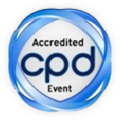
Jeanne Marie Stumpf-Carome
Kent State University, USA
Title: Ecotourism: A zoonotic (forensic) garden of Eden?
Biography
Biography: Jeanne Marie Stumpf-Carome
Abstract
Aspects of ongoing research exploring ecotourism practices related to “saving” endangered primates from extinction are considered in this presentation. Between July, 2008 and July 2015, ecotours to Sabah, Rwanda, Kenya, Madagascar, and Uganda were undertaken. The specific focus of these travels has been to explore the tourist’s participation in ecotourism practices geared toward the rehabilitation of orphaned and/or rescued primates, including environmental solutions, such as, habitat protection of endangered primates, i.e., orangutans, mountain gorillas, chimpanzees, and lemurs. This presentation focuses on several features of ecotourism travel and practices: location, logistics and participation. In light of the consideration of emerging infectious diseases relating to zoonotic transmission, wildlife-to-human and/or human-to-wildlife, this presentation is offered as an opportunity for a forensic window for possible vectors of transmission. Ecotourism specific locations are usually out-of-the-range of local travel for the tourist while within a biome unique to wildlife which is “exotic” enough to be domiciled in zoological and research settings worldwide, and either unique by declining numbers and/or designation at some level of endangerment. Already, there is a rich literature emphasizing location and emerging pathogens which underscores these issues. Explored are some of the characteristics required to participate in this form of tourism, e.g., physical, financial, social, and emotional Highlighted, as an aspect of this specialized travel, are participant experiences encountering wildlife. Although the activities are designed for group participation, variations in participation exist as described. This author’s experiences in these varied settings are expanded upon in consideration of possible vectors for disease transmission

